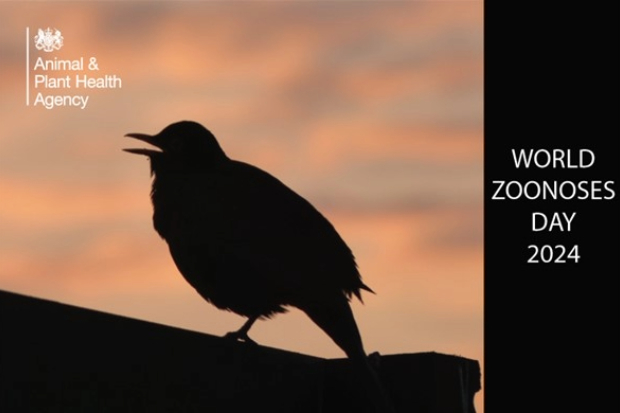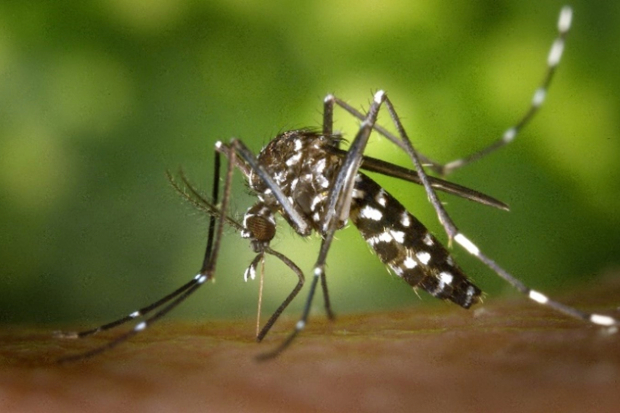
On 4 July 1885, a Parisian boy by the name of Joseph Meister was badly bitten by a rabid dog. At the time, this was almost certainly a fatal injury and, even today, in the 21st century, once rabies symptoms develop, the fatality rate is virtually 100%. However, Joseph did not die because two days after his exposure, he was given the first of fourteen lifesaving vaccinations by Louis Pasteur and his colleagues in Paris. Following this intervention, Joseph would go on to make a full recovery, and Louis Pasteur and his team pioneered the first vaccination to treat a zoonotic disease. Therefore, every year, on 6 July, we commemorate this achievement by celebrating World Zoonoses Day.
But what is a zoonotic disease? Well, simply put, zoonosis is the ability for an infectious agent (bacteria, viruses, fungi, and parasites) to pass between animals and humans. Diseases such as rabies, the plague, Ebola, and tuberculosis all result from zoonotic pathogens, and it is estimated that roughly 60% of known infectious diseases and 75% of emerging diseases have zoonotic origins. Transmission between animals and humans can occur in two ways, either by direct contact with an infected animal or by transmission between hosts by a vector (such as mosquitos and ticks).
Vector-borne diseases (such as malaria and Zika virus) are arguably one of the greatest challenges facing disease control and biosecurity agencies across the world. As the climate changes, it is almost inevitable that many host and vector species will start to establish themselves in new regions. Meaning that diseases, previously thought to be confined to tropical or sub-tropical areas, are likely to emerge in more temperate regions, including the United Kingdom (UK).
Indeed, we have seen examples of vector species moving across Europe, resulting in an increase in vector-borne disease in recent years. We only need to consider the recent increase in dengue fever outbreaks in Spain and southern Europe per year to see the potential for zoonotic diseases to expand. This increase in dengue fever is likely a result of the well documented spread of Asian Tiger mosquito (Aedes albopictus) across Europe. This mosquito, a known vector of dengue and Zika viruses, has spread across Europe since its emergence in Italy in 1990. Despite numerous attempts to control the populations, the Asian Tiger mosquito is now established and persisting in thirteen European countries and has been introduced to a further seven.

So, what does this mean for the UK? Firstly, zoonotic diseases are not new to this country. Diseases such as avian influenza have been of considerable concern in the UK with outbreaks causing significant losses and impacts on the poultry sector. Yet the increasing threat of vector-borne diseases presents new challenges to protecting our biosecurity.
In 2020, APHA scientists detected Usutu virus in the UK for the first time, and subsequently, every year since. Not only was this the first time a mosquito-borne virus had been detected to persist in the UK, but it also highlighted the possibility of zoonotic diseases entering the country via migrating animals.
While Usutu is zoonotic to humans, cases and the implications are, universally, considered to be low, with the majority being asymptomatic. However, Usutu virus is often fatal to its primary hosts, birds, and in particular blackbirds. The marked decline in blackbird populations in parts of the UK, specifically London and the Southeast, is a clear illustration of the importance of ongoing zoonotic disease surveillance and research in the UK. In addition to the environmental and conservation importance, understanding the spread of vector borne diseases, such as Usutu, is vital to preparing for other potential public health threats such as West Nile Virus.
APHA is leading a research project called the Vector-Borne RADAR (Real-Time Arbovirus Detection and Response) project, with the Zoological Society London (ZSL), the British Trust for Ornithology (BTO) and the UK Health Security Agency (UKHSA) to understand the emergence and transmission network of zoonotic mosquito-borne viruses in the UK. While Usutu virus continues to be the primary focus of the project, the looming threat of West Nile virus (a zoonotic virus impacting birds, horses, and humans) emerging from the continent also necessitates ongoing research.
How you can help
If you would like to contribute to the research of the Vector-borne RADAR project, the BTO has launched their recent “Blackbirds in Gardens” project. Anyone can record the number of blackbirds they see in their gardens to help us track and better monitor the impact of Usutu virus populations across the UK.

Recent Comments